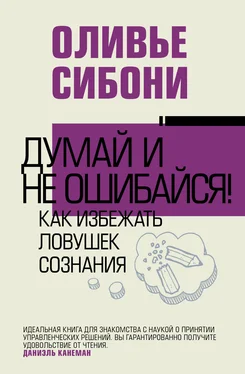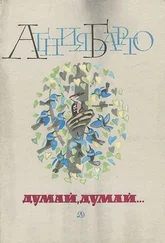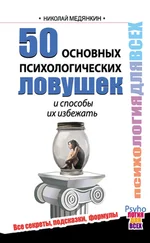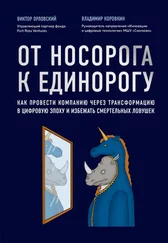Ioannidis, John P. A. “Why Most Published Research Findings Are False.” PLoS Medicine 2, no. 8 (2005): 0696–0701.
Lehrer, Jonah. “The Truth Wears Off.” The New Yorker, December 2010.
Neal, Tess M. S., and Thomas Grisso. “The Cognitive Underpinnings of Bias in Forensic Mental Health Evaluations.” Psychology, Public Policy, and Law 20, no. 2 (2014): 200–211.
Simmons, Joseph P., Leif D. Nelson, and Uri Simonsohn. “False-Positive Psychology: Undisclosed Flexibility in Data Collection and Analysis Allows Presenting Anything as Significant.” Psychological Science 22, no. 11 (2011): 1359–66.
Разное
Taleb, Nassim Nicholas. The Black Swan: The Impact of the Highly Improbable , 2d ed. New York: Random House, 2010.
Глава 2
Эффект ореола
Collins, Jim, and Jerry I. Porras. Built to Last: Successful Habits of Visionary Companies. New York: Harper & Row, 1982.
Nisbett, Richard E., and Timothy DeCamp Wilson. “The Halo Effect: Evidence for Unconscious Alteration of Judgments.” Journal of Personality and Social Psychology 35, no. 4 (1977): 250–56.
Peters, Thomas J., and Robert H. Waterman Jr. In Search of Excellence: Lessons from America’s Best-Run Companies. New York: Warner Books, 1984.
Rosenzweig, Phil. The Halo Effect. and the Eight Other Business Delusions That Deceive Managers. New York: Free Press, 2007.
Принудительное ранжирование
Cohan, Peter. “Why Stack Ranking Worked Better at GE Than Microsoft.” Forbes, July 2012.
Kwoh, Leslie. “‘Rank and Yank’ Retains Vocal Fans.” Wall Street Journal, January 31, 2012.
Опасности стратегической имитации
Nattermann, Philipp M . “Best Practice Does Not Equal Best Strategy.” McKinsey Quarterly, May 2000, 22–31.
Porter, Michael E. “What Is Strategy?” Harvard Business Review, November-December 1996.
Ошибка выжившего
Brown, Stephen J., et al. “Survivorship Bias in Performance Studies.” Review of Financial Studies 5, no. 4 (1992): 553–80.
Carhart, Mark M. “On Persistence in Mutual Fund Performance.” Journal of Finance 52, no. 1 (1997): 57–82.
Ellenberg, Jordan. How Not to Be Wrong: The Power of Mathematical Thinking. London: Penguin, 2015.
Глава 3
Использование интуиции менеджерами и руководителями
Akinci, Cinla, and Eugene Sadler-Smith. “Intuition in Management Research: A Historical Review.” International Journal of Management Reviews 14 (2012): 104–22.
Dane, Erik, and Michael G. Pratt. “Exploring Intuition and Its Role in Managerial Decision Making.” Academy of Management Review 32, no. 1 (2007): 33–54.
Hensman, Ann, and Eugene Sadler-Smith. “Intuitive Decision Making in Bank-ing and Finance.” European Management Journal 29, no. 1 (2011): 51–66. Sadler-Smith, Eugene, and Lisa A. Burke-Smalley. “What Do We Really Understand About How Managers Make Important Decisions?” Organizational Dynamics 9 (2014): 16.
Интуитивное принятие решений
Cholle, Francis P. The Intuitive Compass: Why the Best Decisions Balance Reason and Instinct. Hoboken, NJ: Jossey-Bass/Wiley, 2011.
Gigerenzer, Gerd. Gut Feelings: Short Cuts to Better Decision Making. London: Penguin, 2008.
Gladwell, Malcolm. Blink: The Power of Thinking Without Thinking . New York: Little, Brown, 2005.
Klein, Gary. Sources of Power: How People Make Decisions. Cambridge, MA: MIT Press, 1998.
Эвристика и искажения
Kahneman, Daniel. Thinking, Fast and Slow. New York: Farrar, Straus and Giroux, 2011.
Tversky, Amos, and Daniel Kahneman. “Belief in the Law of Small Numbers.” Psychological Bulletin 76, no. 2 (1971): 105–10.
“ Judgment Under Uncertainty: Heuristics and Biases. ” Science 185 (1974): 1124–31.
Сотрудничество и соперничество Канемана и Клайна
Kahneman, Daniel, and Gary Klein. “Conditions for Intuitive Expertise: A Failure to Disagree.” American Psychologist 64, no. 6 (2009): 515–26.
“Strategic Decisions: When Can You Trust Your Gut?” Интервью Даниэля Канемана и Гари Клайна. McKinsey Quarterly, March 2010.
Применимость профессионализма в разных областях
Shanteau, James. “Competence in Experts: The Role of Task Characteristics.” Organizational Behavior and Human Decision Processes 53, no. 2 (1992): 252–66.
“Why Task Domains (Still) Matter for Understanding Expertise.” Journal of Applied Research in Memory and Cognition 4, no. 3 (2015): 169–75.
Tetlock, Philip E. Expert Political Judgment: How Good Is It? How Can We Know? Princeton, NJ: Princeton University Press, 2005.
(Не)применимость интуиции в принятии кадровых решения
Dana, Jason, Robyn Dawes, and Nathanial Peterson. “Belief in the Unstructured Interview: The Persistence of an Illusion.” Judgment and Decision Making 8, no. 5 (2013): 512–20.
Heath, Dan, and Chip Heath. “ Why It May Be Wiser to Hire People Without Meeting Them.” Fast Company, June 1, 2009.
Moore, Don A. “How to Improve the Accuracy and Reduce the Cost of Personnel Selection.” California Management Review 60, no. 1 (2017): 8–17.
Schmidt, Frank L., and John E. Hunter. “The Validity and Utility of Selection Methods in Personnel Psychology: Practical and Theoretical Implications of 85 Years of Research Findings.” Psychological Bulletin 124, no. 2 (1998): 262–74.
Глава 4
Сверхуверенность
Moore, Don A., and Paul J. Healy. “The Trouble with Overconfidence.” Psycho-logical Review 115, no. 2 (2008): 502–17.
Svenson, Ola. “Are We All Less Risky and More Skillful Than Our Fellow Drivers?” Acta Psychologica 47, no. 2 (1981): 143–48.
Thaler, Richard H., and Cass R. Sunstein. Nudge: Improving Decisions About Health, Wealth, and Happiness . New Haven, CT: Yale University Press, 2008.
Ошибка планирования и неоправданный оптимизм
Buehler, Roger, Dale Griffin, and Michael Ross. (1994). “Exploring the ‘Planning Fallacy’: Why People Underestimate Their Task Completion Times.” Journal of Personality and Social Psychology 67, no. 3 (1994): 366–81.
Flyvbjerg, Bent, Mette Skamris Holm, and Soren Buhl. “Underestimating Costs in Public Works, Error or Lie?” Journal of the American Planning Association 68, no. 3 (Summer 2002): 279–95.
Frankel, Jeffrey A. “Over-Optimism in Forecasts by Official Budget Agencies and Its Implications.” NBER working paper no. 17239, 2011.
Сверхточность
Alpert, Marc, and Howard Raiffa. “A Progress Report on the Training of Prob-ability Assessors.” In Judgment Under Uncertainty: Heuristics and Biases, edited by Daniel Kahneman, Paul Slovic, and Amos Tversky, 294–305. Cambridge: Cambridge University Press, 1982.
Russo, J. Edward, and Paul J. H. Schoemaker. “Managing Overconfidence.” Sloan Management Review 33, no. 2 (1992): 7–17.
Читать дальше
Конец ознакомительного отрывка
Купить книгу




![Владимир Коровкин - От носорога к единорогу [Как провести компанию через трансформацию в цифровую эпоху и избежать смертельных ловушек] [litre](/books/393888/vladimir-korovkin-ot-nosoroga-k-edinorogu-kak-pro-thumb.webp)



